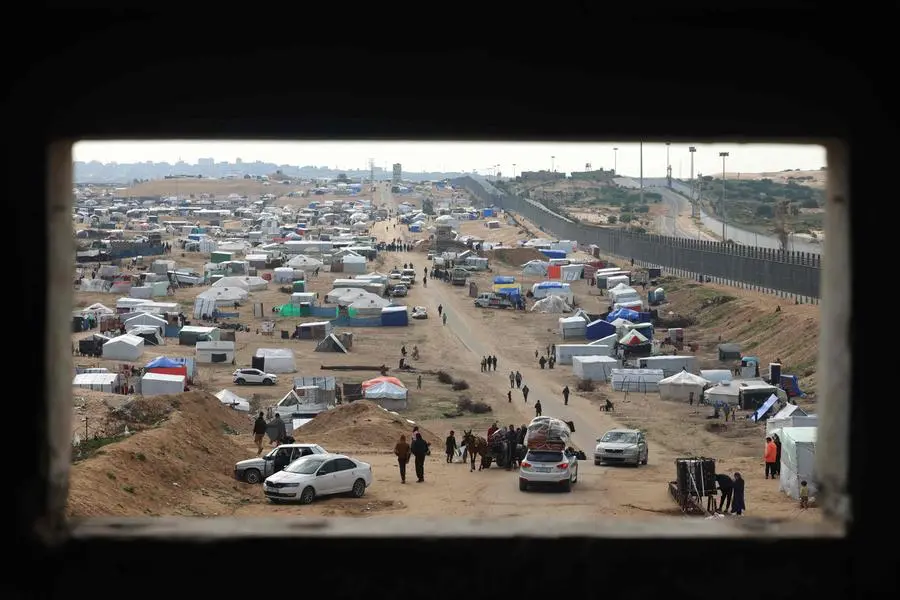PHOTO
An exodus of Gazans into Egypt must be "avoided at all costs", and could be the "nail in the coffin" of a future peace process, the UN refugees chief said Friday.
Nearly 1.5 million displaced Palestinians -- more than half of Gaza's population -- are trapped in Rafah, seeking shelter in a sprawling makeshift encampment near the Egyptian border.
"The position of Egypt has been very clear. People should not go across the border. I think Egypt has very valid reasons," Filippo Grandi told BBC television from the Munich Security Conference.
"It would be catastrophic for Palestinians... to be displaced again.
"It would be catastrophic for Egypt from all points of view, and more important than anything else, a further refugee crisis would be almost the nail in the coffin of a future peace process already."
Like many observers, the United Nations high commissioner for refugees believes that once Palestinians leave Gaza they will no longer be able to return -- as happened in 1948 -- something which would ruin the possibility of a two-state solution between Israel and the Palestinians.
The war accompanying the creation of Israel in 1948 saw 760,000 Palestinians flee or forced from their homes. Millions of their descendants continue to live as refugees in neighbouring countries.
"The old 1948 refugee crisis is an unresolved problem; if you add a dimension to that, you can say goodbye to a meaningful peace process," said Grandi.
"It has to be avoided at all costs."
Pressure has grown on Egypt to open its border to Palestinian civilians, as Israel plans to push ahead with a military operation in Rafah, seeking complete victory over the Hamas militant group.
Grandi said his Geneva-based UNHCR agency was not involved in any preparations that Egypt might be making for if people cross the border.
But in any case, a Gazan refugee surge into Egypt "needs to be avoided and it can only be avoided if humanitarian aid can enter Gaza in significant quantities-- but more important, if hostilities cease", he said.
The war in Gaza was triggered by Hamas's October 7 attack on Israel, which resulted in the deaths of around 1,160 people, mostly civilians, according to an AFP tally based on official Israeli figures.
After the attack, Israel launched a relentless military offensive that has killed at least 28,775 people in Gaza, mostly women and children, according to the health ministry in the Hamas-run Palestinian territory.
Roughly 130 hostages are still believed to be in Gaza after the October 7 attack on Israel.
Grandi said the plight of displaced people in Rafah was "absolutely dramatic".
"So I hope that the appeals by the entire international community for a ceasefire and access of humanitarian aid and the liberation of hostages are heeded by the parties; by Israel, by Hamas."





















